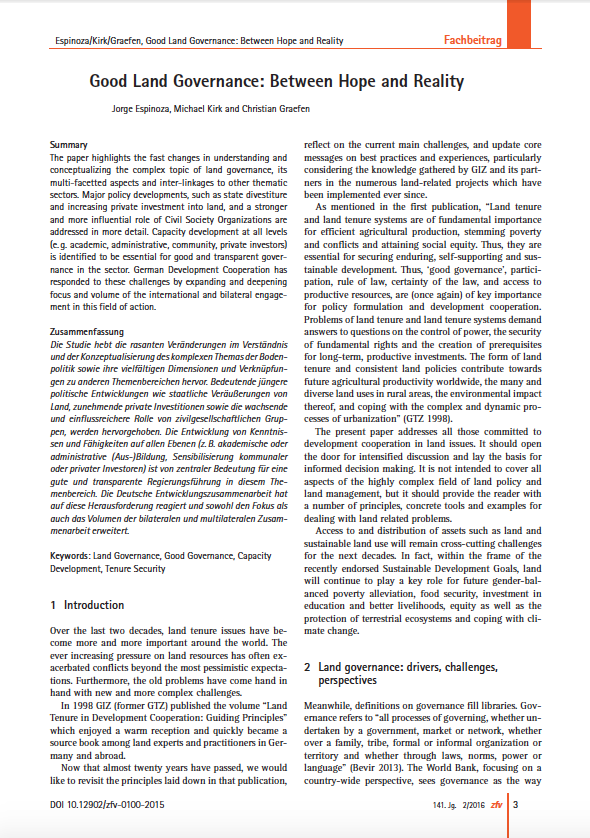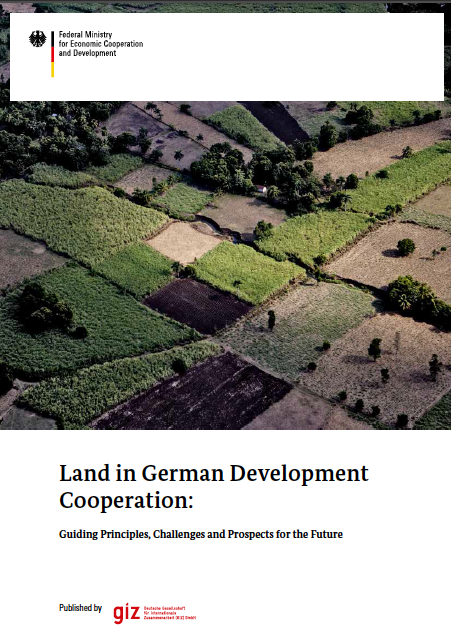Location
As a service provider in the field of international cooperation for sustainable development and international education work, we are dedicated to shaping a future worth living around the world. We have over 50 years of experience in a wide variety of areas, including economic development and employment promotion, energy and the environment, and peace and security. The diverse expertise of our federal enterprise is in demand around the globe – from the German Government, European Union institutions, the United Nations, the private sector, and governments of other countries. We work with businesses, civil society actors and research institutions, fostering successful interaction between development policy and other policy fields and areas of activity. Our main commissioning party is the German Federal Ministry for Economic Cooperation and Development (BMZ). The commissioning parties and cooperation partners all place their trust in GIZ, and we work with them to generate ideas for political, social and economic change, to develop these into concrete plans and to implement them. Since we are a public-benefit federal enterprise, German and European values are central to our work. Together with our partners in national governments worldwide and cooperation partners from the worlds of business, research and civil society, we work flexibly to deliver effective solutions that offer people better prospects and sustainably improve their living conditions.
Members:
Resources
Displaying 191 - 195 of 336Hoja Informativa N.º 1: Situación de las tierras de comunidades nativas en la Región de San Martín (a junio de 2016)
El mapa y los datos que se presentan en esta hoja informan sobre el resultado de la actualización de la línea de base del sistema de información comunitaria sobre los nativos de la Amazonia peruana (SICNA) en la región amazónica de San Martín realizada por el Instituto del Bien Común (IBC). Se llevó a cabo durante el primer semestre de 2016, con el apoyo de la Cooperación Alemana, implementado por el GIZ, a través de su proyecto ProTierras Comunales.
Good Land Governance: Between Hope and Reality
The paper highlights the fast changes in understanding and conceptualizing the complex topic of land governance, its multi-facetted aspects and inter-linkages to other thematic sectors. Major policy developments, such as state divestiture and increasing private investment into land, and a stronger and more influential role of Civil Society Organizations are addressed in more detail. Capacity development at all levels (e. g. academic, administrative, community, private investors) is identified to be essential for good and transparent governance in the sector.
Good Land Governance: Between Hope and Reality
The paper highlights the fast changes in understanding and conceptualizing the complex topic of land governance, its multi-facetted aspects and inter-linkages to other thematic sectors. Major policy developments, such as state divestiture and increasing private investment into land, and a stronger and more influential role of Civil Society Organizations are addressed in more detail. Capacity development at all levels (e. g. academic, administrative, community, private investors) is identified to be essential for good and transparent governance in the sector.
Land in German Development Cooperation: Guiding Principles, Challenges and Prospects for the Future
In 1998 GIZ (former GTZ) published the “Guiding Principles on Land Tenure in Development Cooperation” in the form of a handbook. The publication enjoyed a warm reception and quickly became a source book among land experts and practitioners in Germany and abroad.
Since then the relevance, sensibility and complexity of land policy and land tenure issues have even increased, among other reasons, due to a new wave of strengthened interest in land and agriculture as an investment opportunity, a situation often referred to as “land grabbing”.
Land in German Development Cooperation
The publication offers an overview of different aspects of the highly complex field of land policy and land management providing the reader a number of principles, concrete tools and examples for dealing with land related problems in the German Development Coorperation.




